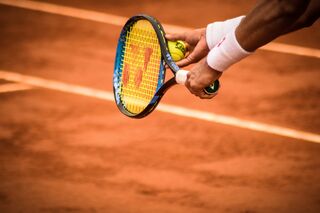Sport and Competition
How Plasticity and Adaptability Create Great Athletes
Key characteristics of expertise in sport.
Posted February 17, 2021

In my previous post, I highlighted the importance of environmental factors in the development of expertise in sport. Most notably, the importance of where and when (relative to the selection year) you are born, the role of older siblings and family, the importance of street sport and being identified early and recruited into a systematic training program impact significantly on your chances of becoming an elite athlete. If nothing else in life, be born lucky.
Another key ingredient in the path to success is the need to have sufficient exposure to the right amount and type of practice in the eventual target sport for expertise. While the debate continues as to the relative benefits of specializing early or late, the latter implying a more diverse sporting background is beneficial, there is no doubt that as humans we adapt to the specific stresses placed upon us during practice and competition. To this end, expertise arises through specific adaptations to the demands of the performance environment. These adaptations occur across all the various sub-systems – physical, physiological, psychological, technical, and tactical – the human body demonstrates considerable plasticity and adaptability.
While it is beyond the scope of this post to focus on all of these adaptations, I highlight some changes that occur related to the development of game intelligence, notably anticipation (i.e., the ability to predict what will happen next), and in the psychological characteristics that helps insulate athletes from choking under pressure.
Anticipation in Sport
Initially, lay-people argued that elite athletes are gifted, like "Superman," with super-human vision; implying that they can see things that us mere mortals cannot. A "great eye" and "superb vision" are the platitudes often endowed on the best baseball batters, tennis players, and American football quarterbacks.
Scientists have subsequently shown that the ability of the best athletes to make it look "like they have all the time in the world" to perceive action on the sports field as if it were in "slow motion" is not the by-product of superior visual function per se. These elite athletes develop perceptual-cognitive skills through years of exposure to a sport that reflect the vast accumulation of knowledge in memory. We can look at the same areas of the display as our heroes and heroines, but ultimately the mind allows them to see different things from what we do.
Scientists have identified a number of different perceptual-cognitive skills such as the ability to pick-up information from the body-shape and movements of an opponent. For example, the subtle movements of the hips, trunk, and racket enable expert tennis players to anticipate the serve of an opponent, whereas the position of the non-kicking foot and angle of the hips allow the goalkeeper in soccer to anticipate, before ball-foot contact, where the penalty-taker will place the ball. Another skill is the ability of experts to recognize structure and familiarity in the opposing team’s patterns of play, enabling them to predict what will happen at the end of the sequence before it actually happens. The very best athletes have accumulated a vast library of different patterns of play and can accurately assign probabilities to all of the likely options available to opponents. They develop in memory a vast library of the different scenarios and situations that evolve in their sport.
These perceptual-cognitive skills enable the best athletes to circumvent the extreme spatial and temporal constraints placed upon them during competition. The best athletes do not have faster brains and reflexes, rather significant adaptations have occurred in cognitive function that means they are never reacting to what they see, but instead are better able to predict the future. While the jury remains out in regards to the extent to which the acquisition of these skills is impacted by genetic factors, there is no doubt that many years of exposure to sport-specific practice and competition is crucial to the development of such skills.
Psychological Characteristics of Greatness: Avoiding Choking Under Pressure
A myriad of psychological characteristics may be crucial in reaching the highest levels of performance in sport and other professional domains. These include passion, interest, motivation, grit, resilience, mental toughness, perfectionism, and self-confidence, to name only a few. These characteristics have varying degrees of genetic heritability, but ultimately prolonged exposure to the sport mould and shape these factors. While having high-levels of passion and interest are probably a necessity for continued engagement in the sport, environmental factors such as the quality of coaching and early success in the sport heavily influence their continued development.
Grit and perfectionism are often highly correlated with engagement in practice. Since experts practice at the edge between success and failure, what we refer to as desirable difficulties or challenge points, the ability to bounce back from adversity and to overcome "speed bumps" on the path to success are crucial. The ability to perform under pressure is particularly important at the highest levels of sport, where developing a mindset that facilitates a "clutch state" – always pulling out the best performances under pressure – are more conducive to success than the proverbial "choking under pressure."
While all athletes have an inherent tendency to get anxious in key moments, experts are able to "fly with the butterflies" and to perceive this anxiety as being indicative of an optimal state of readiness. Several factors affect this ability to be resilient under pressure, such as self-efficacy, locus of control and one’s previous experiences of coming through under those same conditions. Moreover, sport psychology interventions such as positive self-talk, training to enhance mental toughness, pre-performance routines and imagery are effective in developing increased resilience under pressure. Coping with stress is an inevitable requirement to compete at the highest level, but the very best athletes develop through practice and competition the ability to be resilient and to thrive on the pressure created by high-performance sport.
It is inevitable that elite athletes have to make key adaptations to compete at the very highest level of sport. These adaptations enable the best athletes to cope and even thrive under the types of pressures that most of us would find hard to overcome. Ultimately, science is not clear as to how genetics influence the speed and nature of these adaptations, but without exposure to the right type and amount of practice genes on their own are highly unlikely to create champions. Humans are products of their environments and ultimately, the challenge is to nurture athletes so that they can achieve their maximum potential. No one is born great; it's adaptations to practice and competition that create great athletes.




